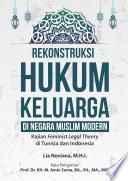
Politik Perpajakan Kontemporer
Pertautan Ekonomi, Politik, Dan Demokrasi
Sejak tahun 2000-an, pajak telah menjadi potensi penerimaan negara yang sangat meyakinkan dan menjadi sentral kehidupan berbangsa dan bernegara, karena pajak dapat berfungsi untuk menyeimbangkan kekuatan sosial dalam masyarakat. Fungsi sederhana pajak adalah membatasi kepemilikan mereka yang kuat dan memberi perlindungan kepada mereka yang secara ekonomi lemah. Lahirnya regulasi yang mengatur pajak daerah membuka ruang pemerintah daerah untuk memaksimalkan potensi perpajakannya untuk memberikan jaminan sosial dan pembangunan yang merata kepada masyarakat. Buku ini merupakan bagian yang tak terpisahkan dari proses pergulatan intelektual dalam menyelesaikan disertasi doktor pada program studi ilmu politik UGM. Buku ini sangat bermanfaat bagi mahasiswa yang menempuh studi hukum, studi perpajakan, studi ekonomi, studi ilmu politik, birokrat pajak, politisi sebagai dasar dalam merumuskan regulasi, dan siapa saja yang meminati studi mengenai politik perpajakan dan melihat kecenderungan proses politik bangsa yang makin mengukuhkan kemandirian, setidaknya dalam hal penerimaan negara yang makin meningkat. Selamat membaca. Buku persembahan penerbit PrenadaMediaGroup #Kencana #PrenadaMedia
- ISBN 13 : 6233841097
- ISBN 10 : 9786233841092
- Judul : Politik Perpajakan Kontemporer
- Sub Judul : Pertautan Ekonomi, Politik, Dan Demokrasi
- Pengarang : Dr. H. Edi Slamet Irianto, S.E., M.Si., Dr. Syarifuddin Jurdi,
- Kategori : Law
- Penerbit : Prenada Media
- Bahasa : id
- Tahun : 2022
- Halaman : 302
- Google Book : https://play.google.com/store/books/details?id=OS5eEAAAQBAJ&source=gbs_api
-
Ketersediaan :
Sejak tahun 2000-an, pajak telah menjadi potensi penerimaan negara yang sangat meyakinkan dan menjadi sentral kehidupan berbangsa dan bernegara, karena pajak dapat berfungsi untuk menyeimbangkan kekuatan sosial dalam masyarakat.








